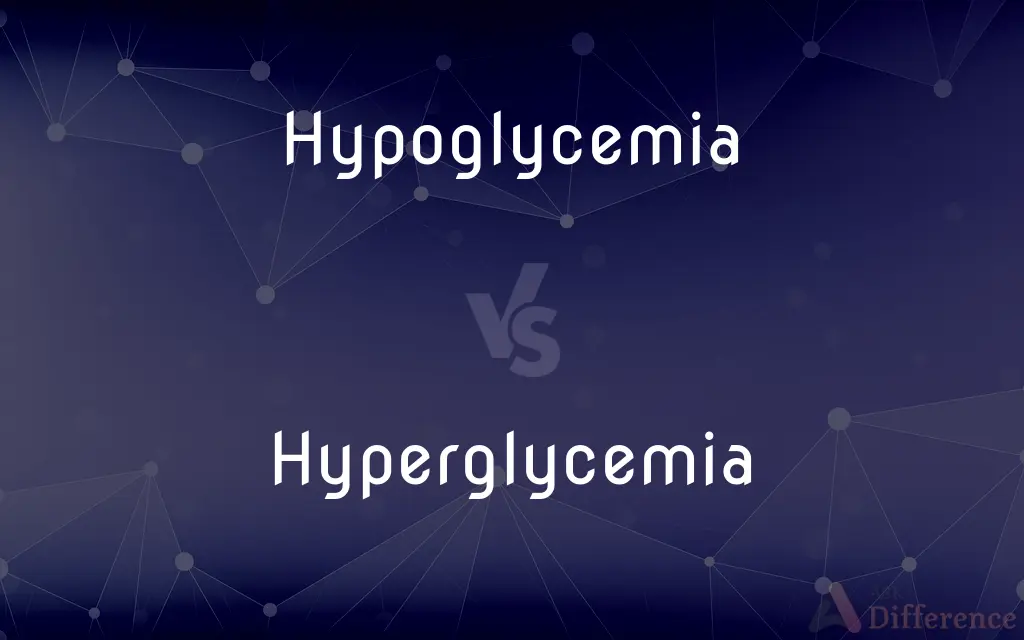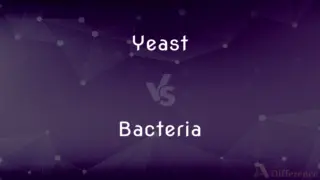Hypoglycemia vs. Hyperglycemia — What's the Difference?

Difference Between Hypoglycemia and Hyperglycemia
ADVERTISEMENT
Compare with Definitions
Hypoglycemia
Hypoglycemia, also known as low blood sugar, is a fall in blood sugar to levels below normal. This may result in a variety of symptoms, including clumsiness, trouble talking, confusion, loss of consciousness, seizures, or death.
Hyperglycemia
Hyperglycemia is a condition in which an excessive amount of glucose circulates in the blood plasma. This is generally a blood sugar level higher than 11.1 mmol/l (200 mg/dl), but symptoms may not start to become noticeable until even higher values such as 13.9–16.7 mmol/l (~250–300 mg/dl).
Hypoglycemia
An abnormally low level of glucose in the blood.
Hyperglycemia
The presence of an abnormally high concentration of glucose in the blood.
Hypoglycemia
(pathology) A too low level of blood glucose.
ADVERTISEMENT
Hyperglycemia
(pathology) An unusually high concentration of sugar in the blood
Hypoglycemia
Abnormally low blood sugar usually resulting from excessive insulin or a poor diet
Hyperglycemia
Abnormally high blood sugar usually associated with diabetes
Share Your Discovery

Previous Comparison
Yeast vs. Bacteria
Next Comparison
Dingo vs. Hyena













































